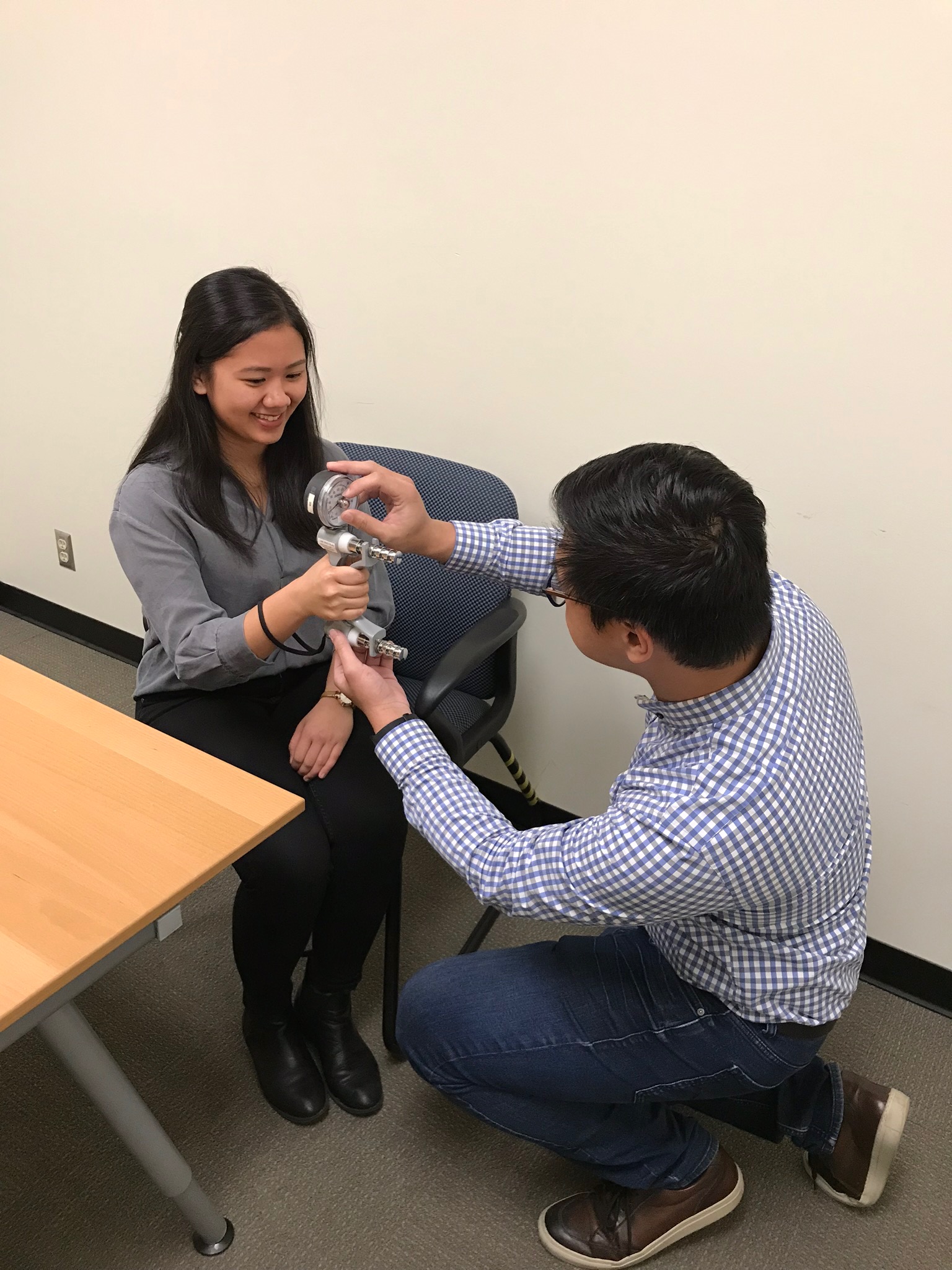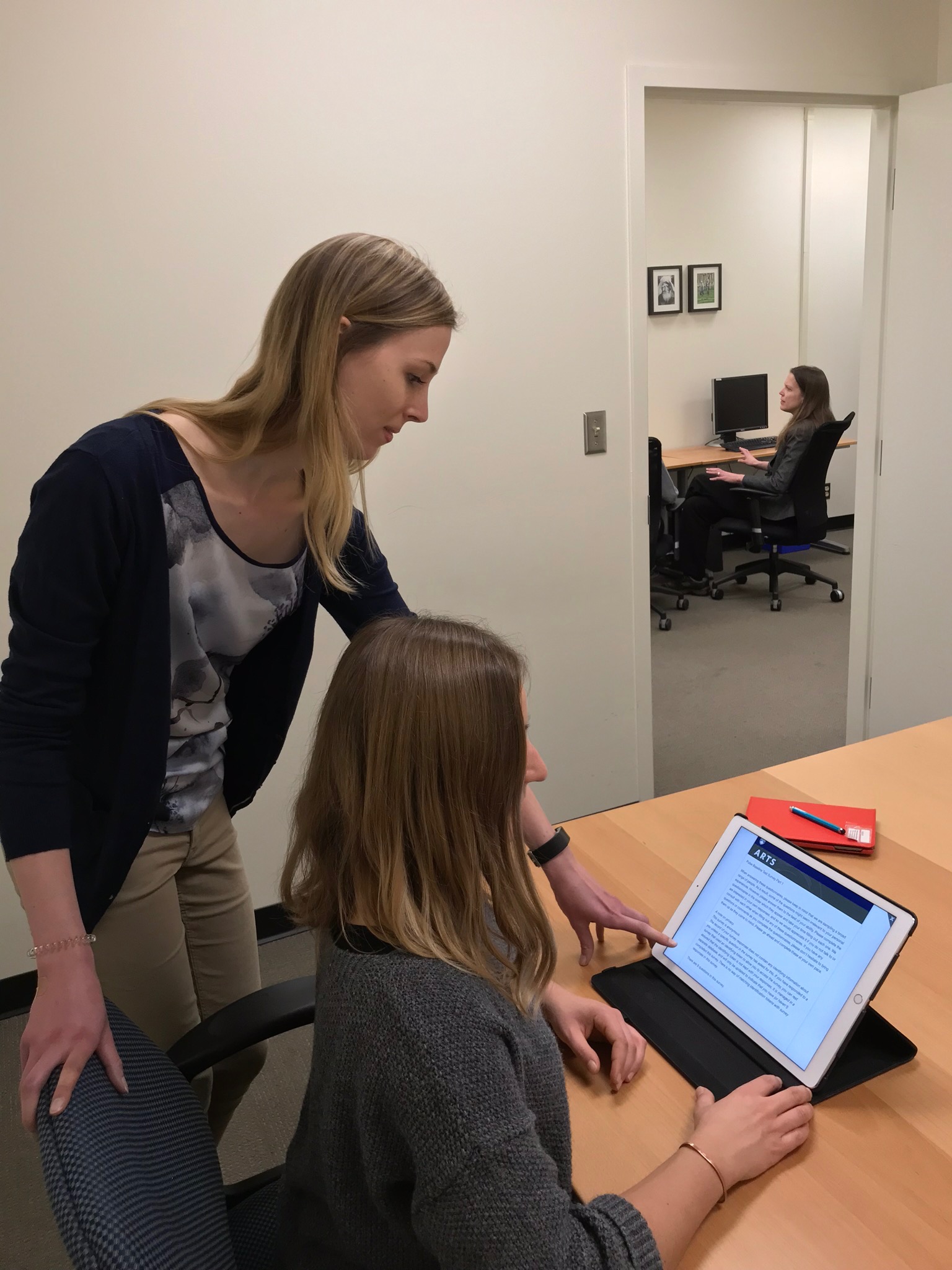Equity and diversity are essential to academic excellence. An open and diverse community fosters the inclusion of voices that have been underrepresented or discouraged. At UBC in general, and in my lab in particular, we encourage applications from members of groups that have been marginalized on any grounds enumerated under the B.C. Human Rights Code, including sex, sexual orientation, gender identity or expression, racialization, disability, political belief, religion, marital or family status, age, and/or status as a First Nation, Métis, Inuit, or Indigenous person. We seek to foster an inclusive and respectful community that offers opportunities for learning and growth.
Undergraduate Research Assistants
 Volunteering as a research assistant provides unique insights and opportunities that go beyond education in the classroom. Undergraduate research assistants gain hands-on research experiences that include learning about research ethics, preparing study materials, recruiting and screening participants, running study protocols, entering and analyzing data, and navigating interdisciplinary teams. Qualifying research assistants may also enroll in directed studies or conduct an honors thesis in the lab. Contributing to research also helps with the development of skills that give students an edge if they decide to apply for graduate and professional programs or seek work in another sector.
Volunteering as a research assistant provides unique insights and opportunities that go beyond education in the classroom. Undergraduate research assistants gain hands-on research experiences that include learning about research ethics, preparing study materials, recruiting and screening participants, running study protocols, entering and analyzing data, and navigating interdisciplinary teams. Qualifying research assistants may also enroll in directed studies or conduct an honors thesis in the lab. Contributing to research also helps with the development of skills that give students an edge if they decide to apply for graduate and professional programs or seek work in another sector.
To apply, please send an unofficial transcript, brief statement of motivation, and CV to hoppmannlab@psych.ubc.ca. Any questions can be sent to hoppmannlab@psych.ubc.ca
All lab members are required to complete the tricouncil ethics tutorial and a data management and safety course.
Directed Studies & Honors Thesis
 If you are interested in pursuing a directed studies or honors thesis in the lab, contact Dr. Hoppmann (choppmann@psych.ubc.ca) to discuss opportunities. Please make sure to include a brief statement of interest, CV, and a copy of your transcript.
If you are interested in pursuing a directed studies or honors thesis in the lab, contact Dr. Hoppmann (choppmann@psych.ubc.ca) to discuss opportunities. Please make sure to include a brief statement of interest, CV, and a copy of your transcript.
Students who are already affiliated with the lab are given priority when it comes to directed studies and theses.
If you are interested in Directed Studies but have not previously volunteered in the Health and Adult Development Lab, please:
1) include on your CV at least one reference who can comment on your prior research lab experience
2) include an academic writing sample with your application (for example, a research report or final paper completed for a course such as PSYC217, PSYC260 or PSYC366).
Graduate Students

I am currently accepting applications for prospective graduate students in Health Psychology. If you are interested in joining the Health and Adult Development Lab as part of your graduate studies, please review the information below and check this page for future updates.
Is this lab a good fit for me?
Research in the Health and Adult Development Lab focuses on the psychological mechanisms, such as goal-related processes and social support, that contribute to the successful mastery of everyday challenges (engaging in health behaviors, navigating stressful encounters), thereby promoting health and wellbeing across the adult lifespan. I am looking for excellent graduate students with an interest in social relationships and health, lifespan development, self regulation, and aging research.
What is it like to be a graduate student?
Graduate students in my lab
- Regularly meet with me to discuss their research interests and career goals.
- Receive training in the ethical conduct of research, study design and protocol implementation, study management, data analysis, interpretation of findings, and the preparation of conference presentations and manuscripts for dissemination.
- Attend lab meetings, graduate seminars, health psychology brownbags, and research colloquia to learn about and critically discuss current research.
- Present their findings at national and international conferences.
- Are involved in training undergraduate research assistants. They therefore not only become competent researchers themselves but also serve as mentors to junior colleagues- a skill that benefits them when they leave graduate school.
- Learn to navigate collaborative research projects involving scholars from different disciplines, national and international universities, and community organizations.
What do I need to know before I apply?
Prospective students should
- Have past research experience in a psychology or health-related lab.
- The GRE is optional for Fall 2022 graduate admissions for the Health area. All applicants will receive full and careful consideration from me regardless of whether they submit GRE scores. If you choose to submit GRE scores, I will consider them as part of my holistic assessment of your application. Especially if you feel that the other aspects of your application do not provide a complete or accurate picture of your capabilities, you could consider taking the GRE. For example, if you received grades in a statistics class that you feel do not adequately reflect your underlying abilities, an alternative way to demonstrate your capabilities would be through a strong score on the quantitative section of the GRE.
- Have strong letters of recommendations from past professors and research advisors who can speak about past experience, performance, and abilities.
- Be interested in pursuing a research-focused academic career. A good fit between an advisor and a student’s research interests is essential for a productive and successful experience in graduate school. Please take a close look at the research and publication sections on this website.
How do I apply?
- Details on how to apply
- Specific information about the Health area in our department
- Graduate Student Handbook
- Prospective students are strongly encouraged to apply for funding or other stipends they are eligible for.
- Additional information on graduate program information on admissions, registration, grades, and scholarships, contact gradsec@psych.ubc.ca.
- Please reach out to me if you are planning to apply as a graduate student (choppmann@psych.ubc.ca). Good things to include in your email are a brief statement of interest, your CV, and transcript.
I look forward to hearing from you!